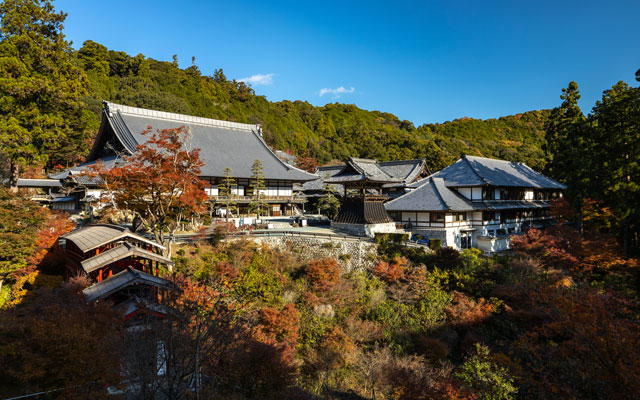Short of visitors during the pandemic and eager to find alternative uses for their facilities, Japan’s temples are now appealing directly to the business events sector.
For instance, Houkouji Temple in the forested hills of Shizuoka Prefecture, south-west of Tokyo, has already hosted meetings, events and shukubo retreats for Japanese groups. Shukubo is an accommodation experience in which the traveller lodges at a Buddhist temple.

It is now working to attract foreigners to its sprawling facilities, said Zendo Oshima, a senior monk and director of the temple.
“We have a large main hall that can accommodate several hundred people for zazen meditation, lectures, meetings and other events. Our dedicated zazen meditation hall is also registered as an important national cultural asset,” he said.
The 15,000m2 complex also has a historic tea ceremony room, a small meeting room, overnight accommodation for up to 50 people and dining facilities for shojin ryori (traditional Buddhist vegetarian cuisine) for as many as 200 people.
Aside from providing tables, chairs, projectors and whiteboards for meetings, corporate groups are also encouraged to take part in morning services such as zazen meditation, yoga, copy of sutras or guided treks in the surrounding sacred mountains, said Oshima.

He opined: “An increasing number of foreigners are visiting Japan and there is a world-wide interest in zazen, mindfulness and vegetarian cuisine. Temples, which have been handed down from our ancestors for hundreds of years, are symbolic of a sustainable society, and I believe people will want this experience more in the future.”
Mai Sato, founder and CEO of Tokyo-based ShareWing, operates the Otera Stay brand and represents 10 temples across Japan that can host corporate
groups.
“The number of temples interested in offering shukubo has been increasing, while more that have lodgings and want to expand (their services) to offer accommodation for tourists and corporate events are also asking us to provide consulting services,” she told TTGmice.
She pointed out that the experience at these Japanese temples is very different from “city hotels and bustling resorts”.
“The large halls, Japanese-style rooms and the magnificent traditional Japanese architecture of the temple are special features,” she said. “Visitors can experience the art of Buddhist statues, paintings and architecture – many of which are listed as national treasures.”





















